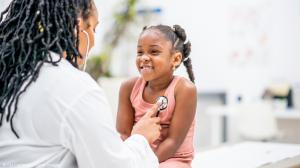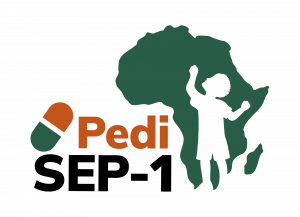Reducing antibiotic overuse in African hospitals through a new approach to paediatric care
Currently, inpatient paediatric treatment guidelines are applied to very broad groups of children with a wide range of risks.”
PADOVA, PADOVA, ITALY, September 30, 2025 /EINPresswire.com/ -- PediSEP-1, a new international partnership funded by the Global Health European & Developing Countries Clinical Trials Partnership Joint Undertaking (EDCTP3), officially announces the launch of its transformative project to address the urgent threat of antimicrobial resistance (AMR) in children admitted to government-run hospitals in Africa. — Jay Berkley, PediSEP-1 Chief Investigator
Antimicrobial resistance (AMR), fuelled by excessive and improper use of antibiotics, is a growing global health crisis that disproportionately affects children in Africa, where current paediatric care guidelines often lead to overuse of antibiotics and prolonged hospital stays for children at low risk of severe infection. This situation not only endangers young lives but also accelerates the spread of resistant infections in hospitals and communities.
PediSEP-1 seeks to modernise paediatric care by introducing a risk-differentiated approach that identifies very low-risk children who can be safely discharged sooner with minimal or no antibiotic treatment. Their care is then supported by a virtual ward, a system of telephonic follow-up and targeted education for parents and caregivers that was developed during the COVID-19 pandemic. By tailoring treatment to each child's clinical risk, the project aims to reduce unnecessary antibiotic prescriptions and hospital admissions, ultimately decreasing AMR transmission and improving hospital efficiency.
Key highlights of the PediSEP-1 project include:
Development of risk assessment tools to classify children based on their infection severity
- Integration of digital health solutions to support healthcare workers in clinical decision-making
- Strengthening of antimicrobial stewardship through targeted protocols and capacity-building for frontline workers
- Implementation of a multi-centre, cluster-randomised clinical trial across African hospitals to validate project outcomes
- Measurement of transmission of antimicrobial resistance, resource implications and costs in addition to antibiotic usage
“Currently, inpatient paediatric treatment guidelines are applied to very broad groups of children with a wide range of risks.” According to Jay Berkley, PediSEP-1 Chief Investigator, “In low- and middle-income countries, key patient management decisions are often made by inexperienced clinicians. Developing guidance based on risk aims to safely redirect resources from lower- to higher-risk children and reduce the spread of AMR."
The anticipated impacts of PediSEP-1 extend beyond immediate clinical benefits to include:
- Reduced rates of antimicrobial resistance in hospital and community settings
- Enhanced training and empowerment of African healthcare professionals
- Evidence-based policy recommendations to influence national and international paediatric health guidelines
- Lower healthcare costs through optimised resource utilisation and shorter hospital stays for low-risk children leading to reduced hospital crowding and more staffing and resources available for sicker children
Through its innovative, risk-based approach, PediSEP-1 sets a new standard for paediatric infection care, laying the foundation for lasting reductions in antimicrobial resistance and healthier futures for children across Africa.
For more information about PediSEP-1 and ongoing project updates, please visit www.pedisep1.org
PediSEP-1 is led by the University of Oxford, with key collaborators including Kenya Medical Research Institute (KEMRI), KEMRI/Wellcome Trust Research Programme (KWTRP), The Penta Foundation (Penta), Training and Research Unit of Excellence Limited (TRUE), University College London (UCL) and World Alliance for Lung and Intensive Care Medicine in Uganda (WALIMU). The project also benefits for the valuable contributions of associated partners, John Hopkins University, the Institute of Global Health and the University of Washington.
Francesca Mazzetto
Penta Foundation ETS
+39 348 615 1202
email us here
Visit us on social media:
LinkedIn
Bluesky
Instagram
Facebook
YouTube
Legal Disclaimer:
EIN Presswire provides this news content "as is" without warranty of any kind. We do not accept any responsibility or liability for the accuracy, content, images, videos, licenses, completeness, legality, or reliability of the information contained in this article. If you have any complaints or copyright issues related to this article, kindly contact the author above.


